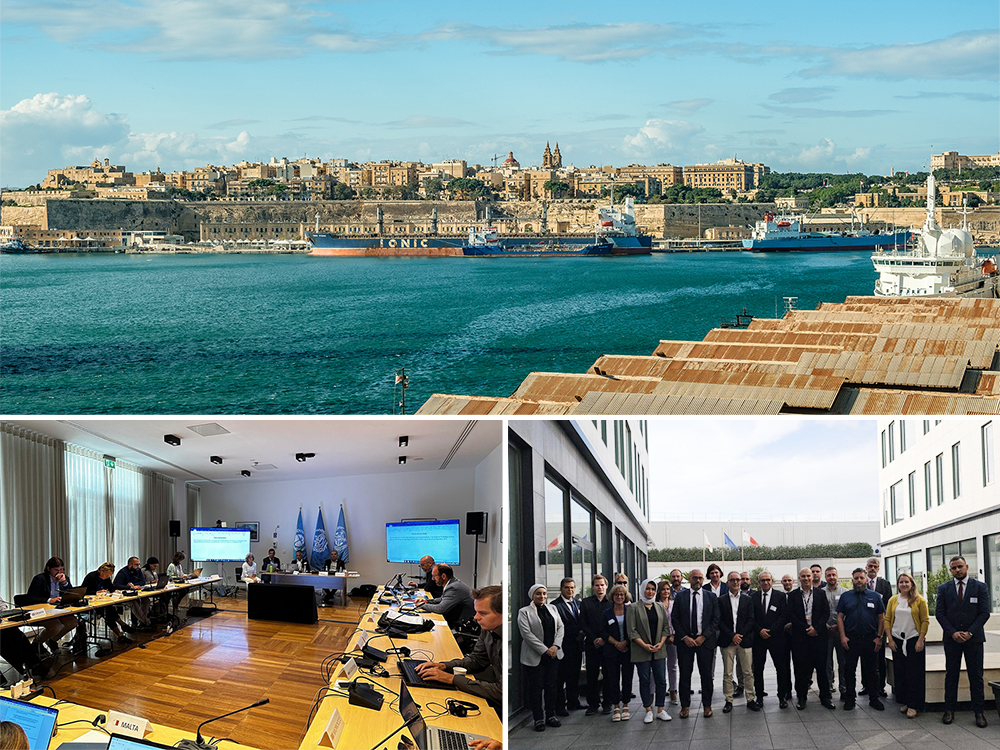Mediterranean countries are taking joint action to protect the region's marine environment by improving the way they report, monitor and share data about shipping pollution incidents.
A workshop delivered through IMO's Integrated Technical Cooperation Programme (ITCP) in Lija, Malta (25-26 September) and organized by the Regional Marine Pollution Emergency Response Centre for the Mediterranean Sea (REMPEC), brought together 19 officials from Bosnia and Herzegovina, Egypt, Libya, Montenegro, Morocco, Tunisia and Türkiye.
The aim was to promote effective reporting, monitoring, and data sharing about oil spills from ships and other pollution incidents, which these countries are required to do as Contracting Parties to the Barcelona Convention, specifically its 2002 Prevention and Emergency Protocol and the 1994 Offshore Protocol.
The Convention for the Protection of the Marine Environment and the Coastal Region of the Mediterranean ("Barcelona Convention") and its seven Protocols constitute the principal regional legally binding Multilateral Environmental Agreement (MEA) in the Mediterranean.
Participants at the workshop (“MEDEXPOL 2024”) discussed how these efforts could enhance the Mediterranean Quality Status (MQS), which is produced by the United Nations Environment Programme (UNEP) to assess the state of the marine environment in the region.
They explored REMPEC's latest tools and platforms for reporting, monitoring and data-sharing, and discussed how to ensure these systems are aligned with national activities under the Basel Convention. The use of REMPEC’s Common Emergency Communication and Information System for Marine Pollution (CECIS MP) as a regional communication tool was recommended.
Discussions will inform the development of manuals, tools, and templates to streamline future reporting and monitoring processes.
REMPEC is administered by IMO under its Integrated Technical Cooperation Programme in cooperation with the Mediterranean Action Plan of the United Nations Environment Programme (UNEP/MAP).
